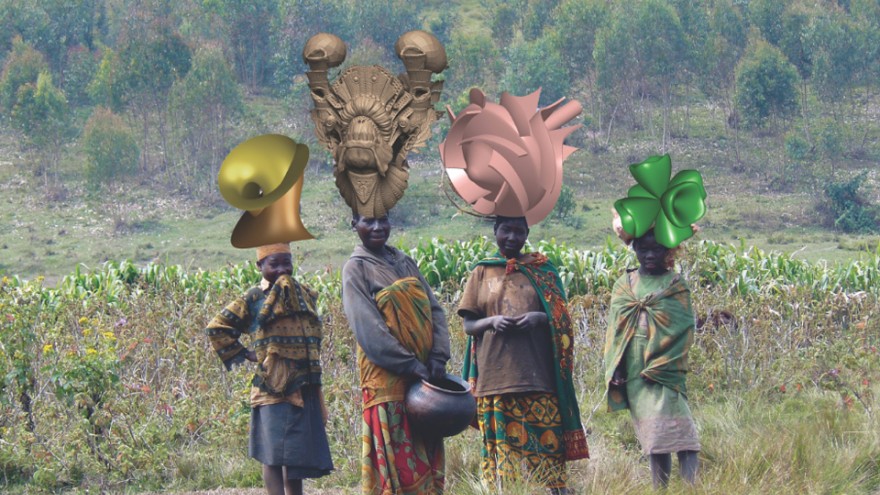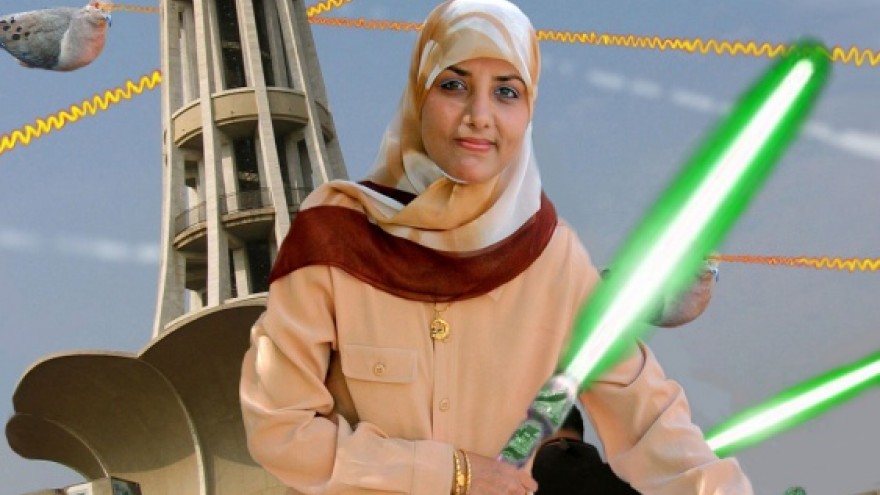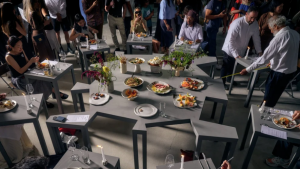Looking beyond the West to see what the “rest” are up to is at the heart of No More Westerns, the theme of the 23rd edition of the Impakt Arts Festival that recently took place alongside Dutch Design Week in the Netherlands.
In recent years we’ve seen dramatic changes in the geopolitical and economic landscape of the world, a fact which also feeds into the dominant cultural dynamic in the world today.
Through a series of exhibitions, lectures, films, videos and workshops No More Westerns seeks out the cultural consequences of the West-South political and economic shifts in the world today.
Cher Potter is one of the two curators of No More Westerns. She explains that the festival elements are cross-disciplinary, including design, media, philanthropy, curation and information, to essentially offer critical and creative views on contemporary media culture. At the same time No More Westerns seeks to present alternate flows of culture and aesthethics in a post-Western world, making it more inclusive of the rising power and influence of the Global South, she goes on.
Potter worked with Shanghai-based researcher Samantha Culp on curating the exhibition. The two have been working together for a couple of years now and became increasingly interested in what happens when the relationship between Africa and China goes beyond economics and starts to include culture.
No More Westerns takes this curiosity further to include other key players in the Global South, including Brazil and India.
On an early morning Skype call Potter explains that No More Westerns is simply an idea beyond the First World. As such, the curatorial duo have no political agenda with No More Westerns , apart from wanting to showcase what is happening culturally – beyond the well-established Western media space. She adds that there is definitely something going on in the cultural field, even though we are not hearing very much about it. “It is simply no longer realistic to just talk about what the West is up to in terms of design, culture and creativity because it is not realistic. It is not the way the world works anymore.”
As a speculative space No More Westerns considers what a new modernity might entail, both from a critical and analytical point of view. With contributions from across the globe, Potter explains that No More Westerns “is about futurism and how to locate yourself in this future, which looks to the Global South as the producer of contemporary media culture”.
Potter continues: “It is about looking at the West through the eyes of the rest, rather than the other way around. It’s the question of what happens when America is just another country.”
What does this mean for cultural production in the West? For one, the rise of the South does not necessarily imply the fall of the West, but it will affect art, culture, design and creativity, Potter points out.
There are different strands to No More Westerns. Potter explains that there is the “interaction” part, and then there’s the “relooking of the future”. She adds: “It is about making it exciting and showing an entirely new visual and cultural course, one that is inclusive and open to everybody’s interpretations.”
The irony of a festival themed “No More Westerns” being held in Utrecht in the Netherlands, in Europe, is not lost on Potter. “It is particularly important to highlight the alternative things that are happening to this specific audience.”
Managing the expectation of the audience is also what Potter anticipates will be one of the key challenge of No More Westerns: “The Impakt Festivals are usually very local, very European, so what the audience have come to expect is radically different from what is on offer this year,” Potter explains.
Showcasing the work of artists from places outside the established Western cultural axis has presented another interesting challenge for Potter and Culp. In some instances it was easier to transport works of art across national borders and continents than the artists themselves. The reality is that some of the guests (artists) will not be present at Impakt becuase of travelling restrictions such as visas. A situation which is in itself very telling of the South-West situation dominant in the world today, “when it is physically impossible to attend an exhibition of your own work in another country”, Potter elaborates.
No More Westerns won’t end with Dutch Design Week 2012. Potter says the project will mainfest in a number of ways post-DDW. “It is ultimately a research project that will live at www.nomorewesterns.org where resources and research will be constantly added.”
It’s about continuing the conversation that starts with: “Global South means…”








